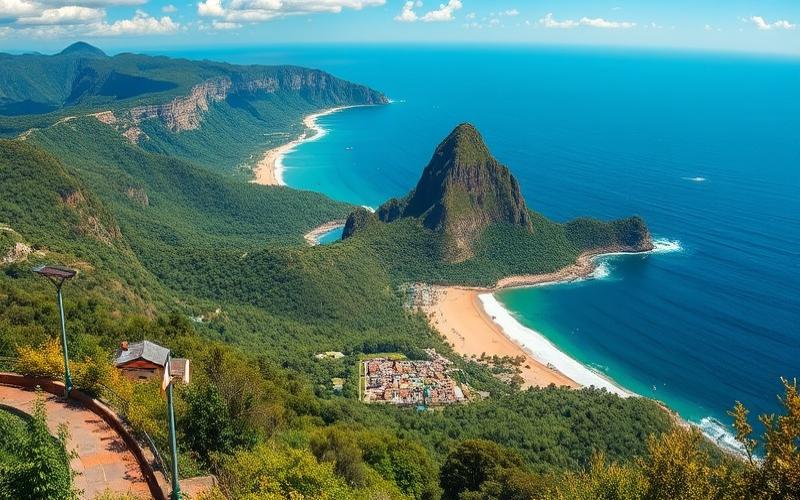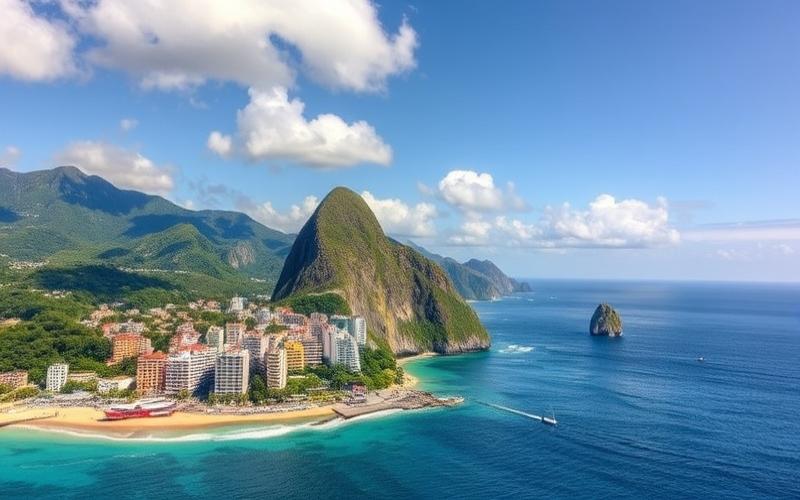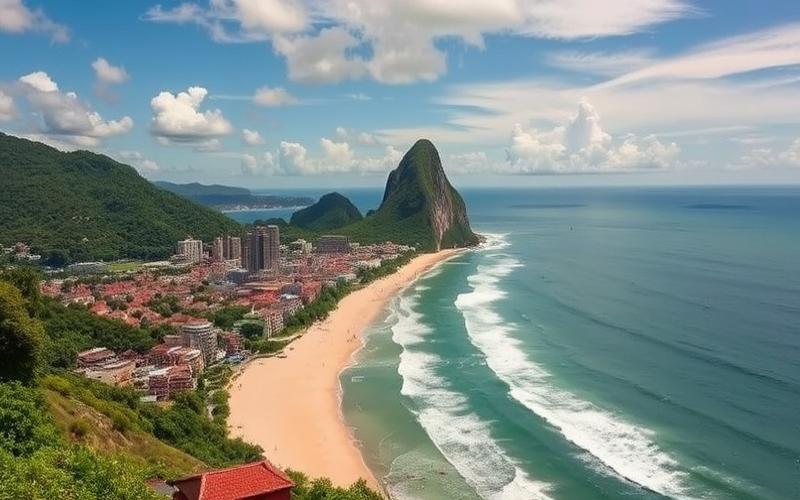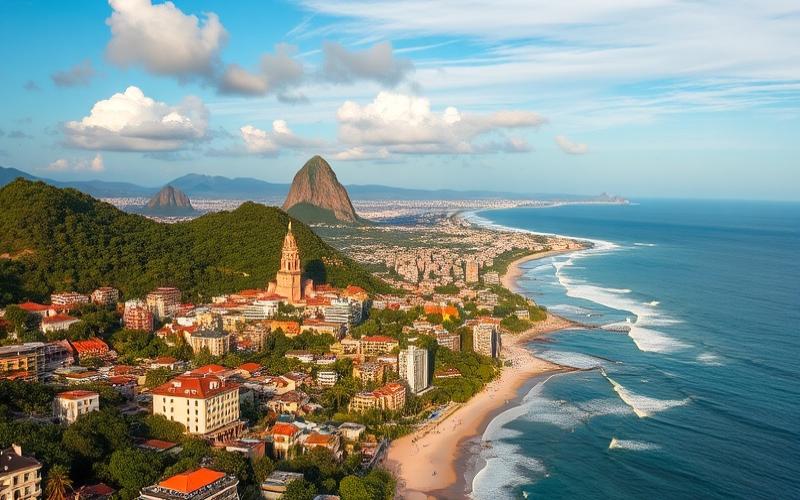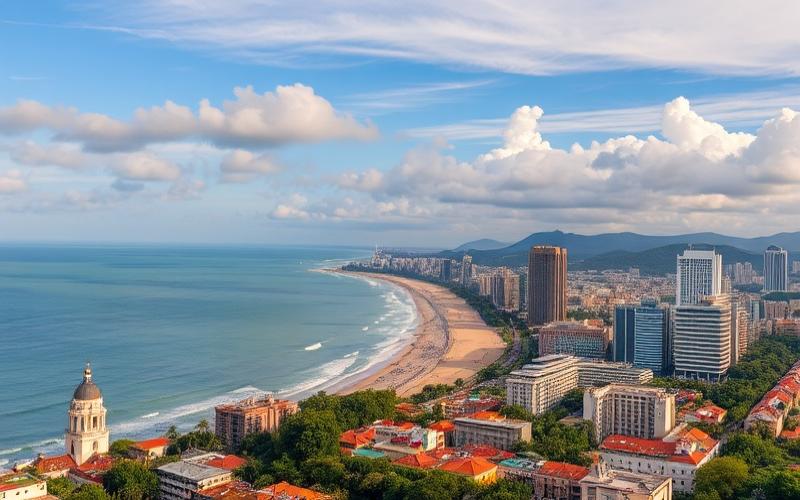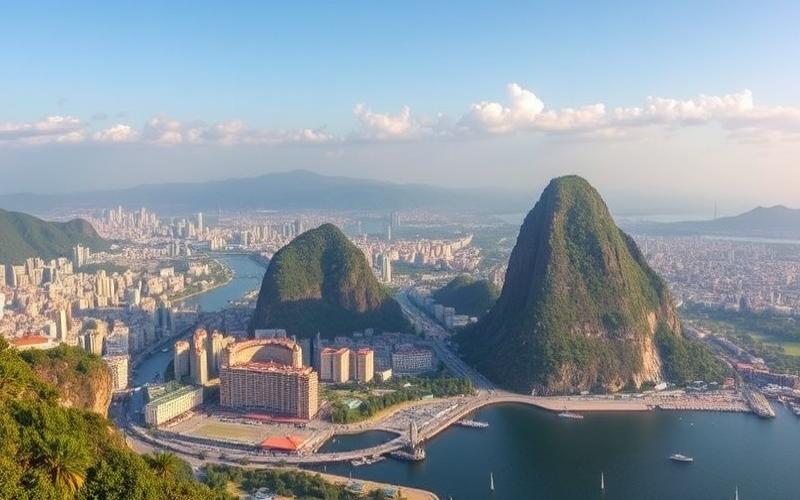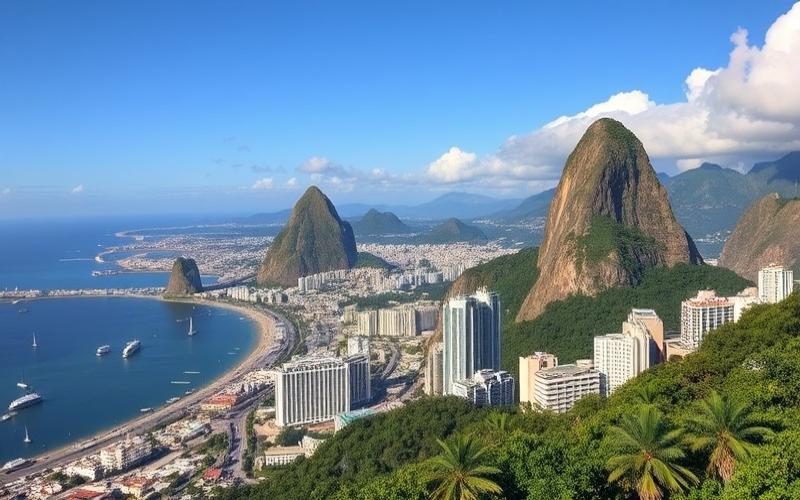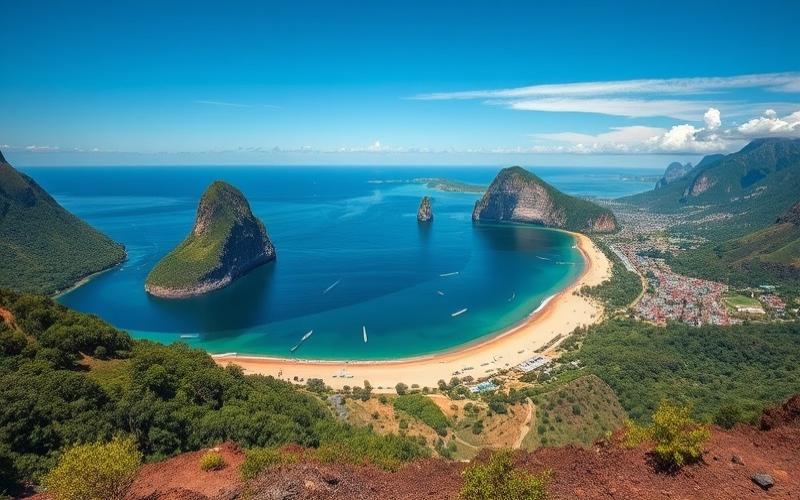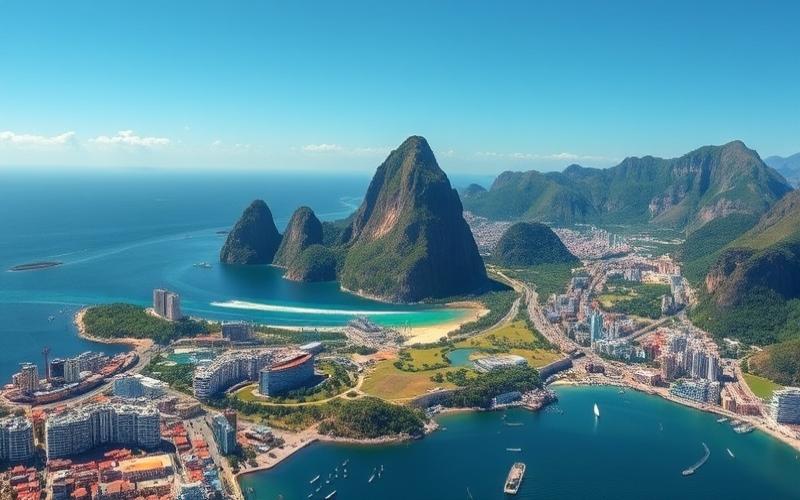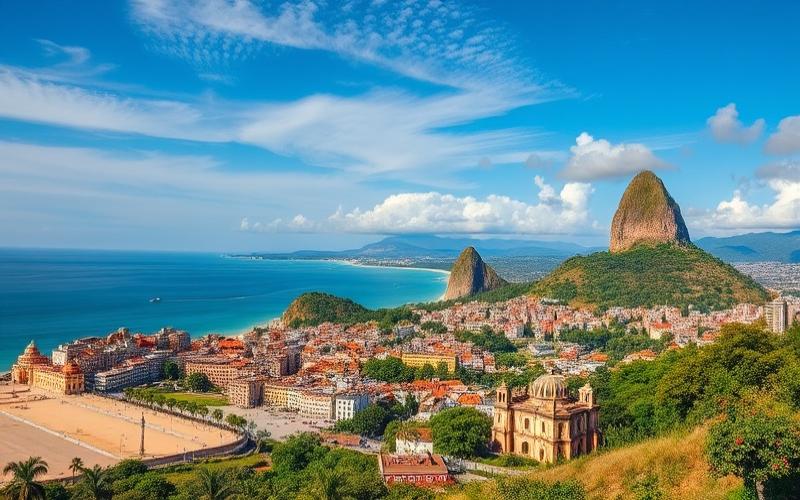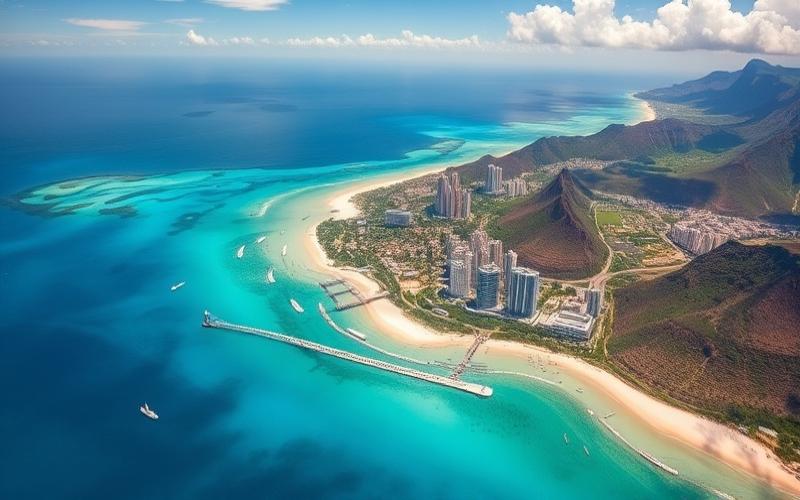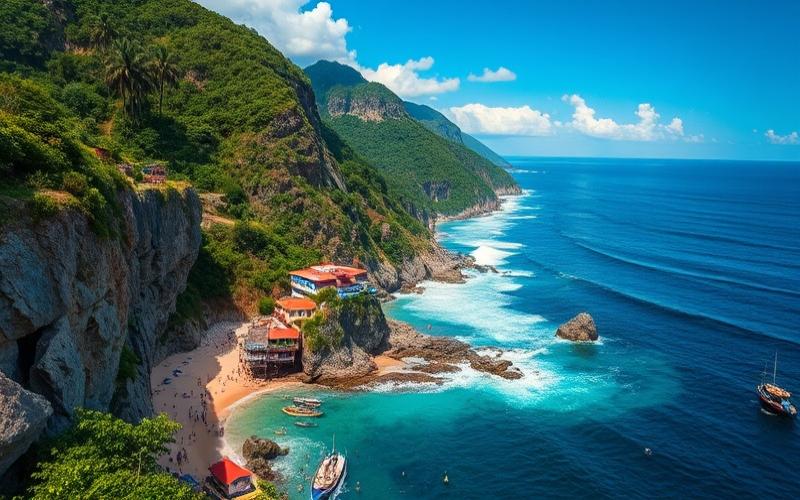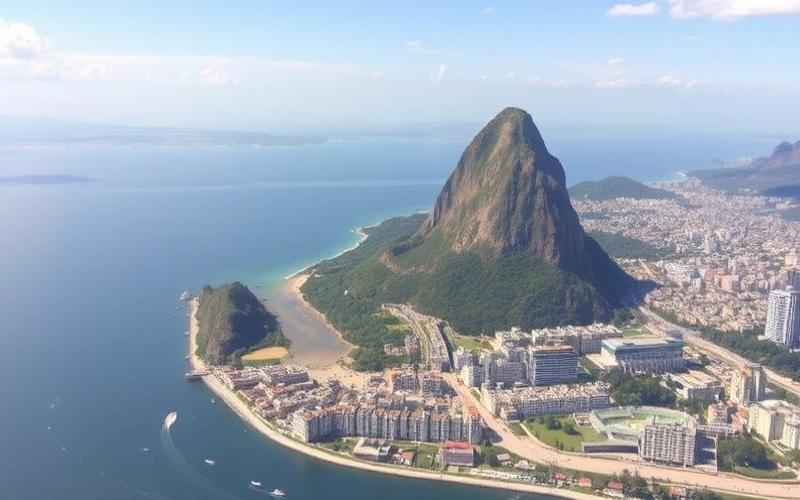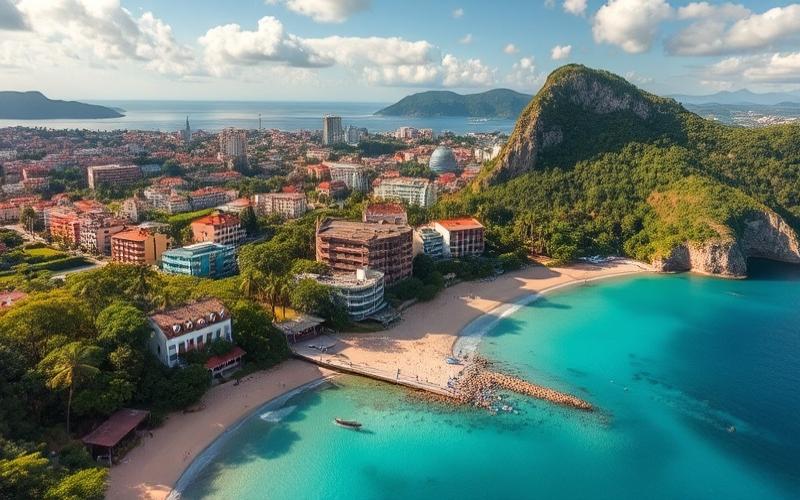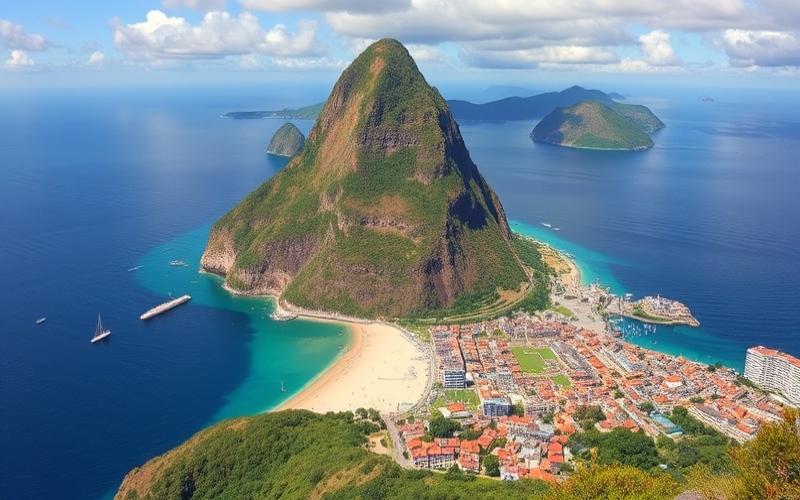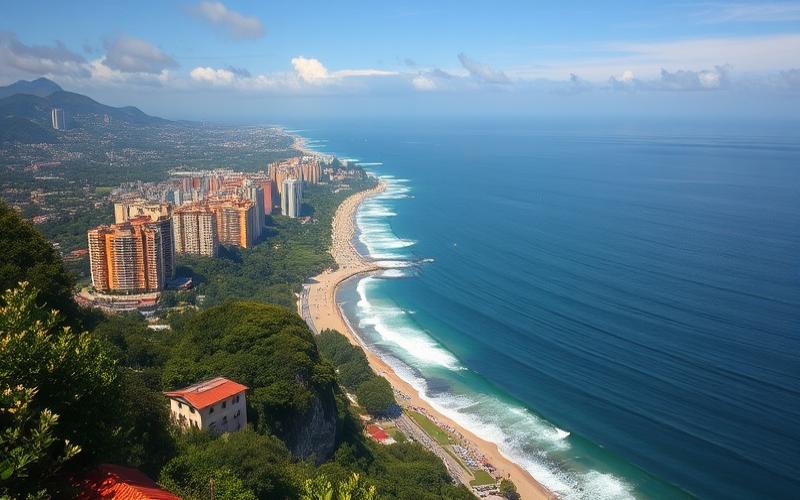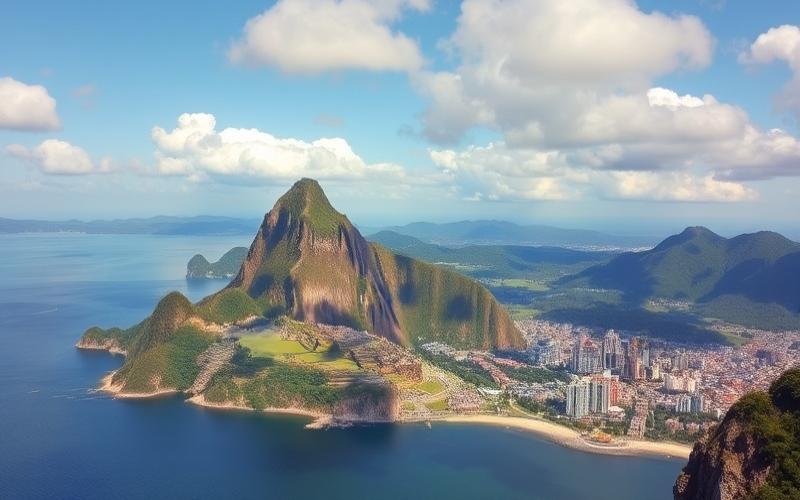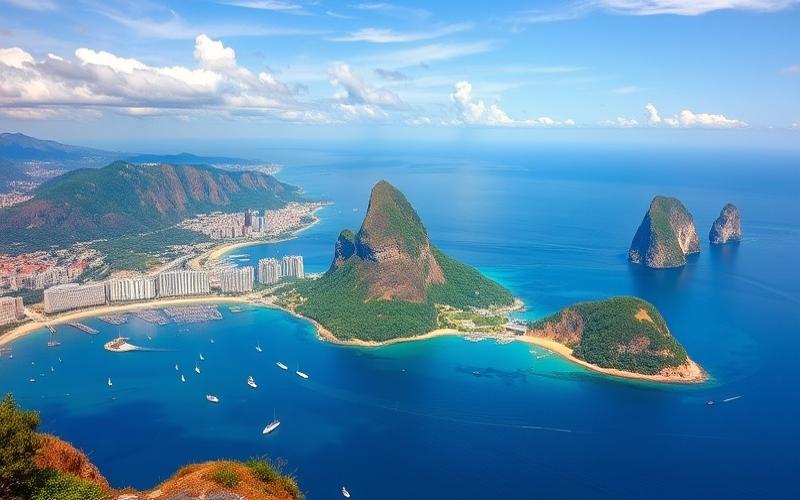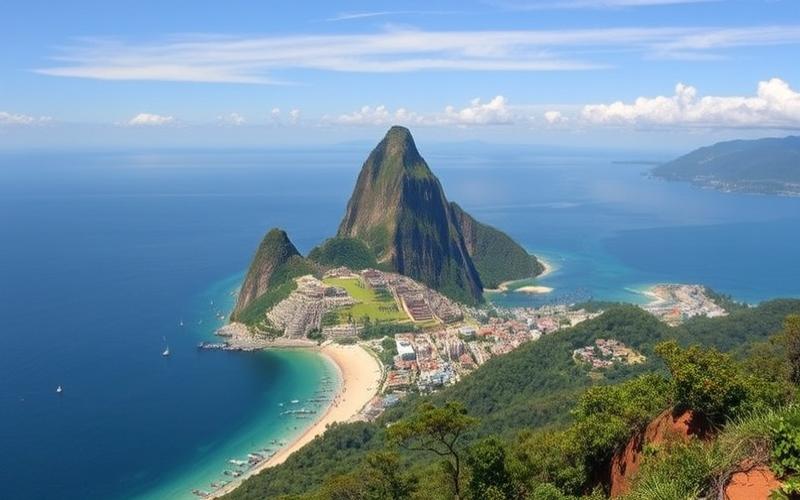
 Published on and written by Cyril Jarnias
Published on and written by Cyril Jarnias
The evolution of foreign nationals’ rights in Brazil is a constantly changing subject, gaining particular prominence as the country navigates complex sociopolitical dynamics.
In 2025, Brazil is considering new legislative reforms aimed at strengthening rights for immigrants while attempting to control migration flows in the face of increased economic and environmental pressures.
This year also marks a pivotal period with heated debates about the integration of refugees and displaced populations, highlighting the country’s efforts to balance humanity and security.
Exploring recent trends and current developments in Brazilian migration policies is essential to understanding how these changes will affect not only foreigners living in Brazil but also the country’s very identity as a welcoming land.
Recent Legislative Developments on Immigration in Brazil
Between 2024 and 2025, Brazil adopted several major immigration reforms, motivated primarily by considerations of international reciprocity, the need to better manage migration flows from regional crises, and the economic integration of migrants.
Main Laws and Legislative Changes:
- Decree No. 11,982 of April 9, 2024:
- End of unilateral visa exemption for nationals of the United States, Canada, and Australia starting April 10, 2025.
- Implementation of an eVisa system for tourism or business (average processing time: two weeks).
- Discussion on the National Policy on Migration, Refuge, and Statelessness (PNMRA):
- Strengthening of the legal framework for the protection of refugees and stateless persons.
- Examples of Concrete Application in 2024–2025:
- Increased use of artificial intelligence by the National Committee for Refugees (CONARE) to speed up administrative processing of applications (almost all cases analyzed in October 2024).
- Exceptional exemption from foreign diploma revalidation fees for refugees/migrants through partnership with the National University.
Main Motivations Behind These Changes:
- Economic pressures aimed at strengthening reciprocity in diplomatic treatment with certain Western countries.
- Response to migration crises, particularly Venezuelan or Haitian, requiring rapid adaptation of the Brazilian administrative system.
- Alignment with international policies: stated intention by the Lula government to avoid any unilateral exemption without equivalent reciprocity.
| Change | Main Motivation | Concrete Effects |
|---|---|---|
| Reinstatement of visa requirement for US/CA/AU | Diplomatic reciprocity | Mandatory eVisa process |
| AI acceleration of refugee cases | Humanitarian pressure & administrative efficiency | Reduced bureaucratic delays |
| Diploma fee exemption | Economic integration | Greater access to job market |
Impacts on Rights, Duties, and Administrative Processes:
- Newcomers must now comply with a stricter digital process during their initial application; this notably includes systematic biometric collection.
- Fundamental rights – access to social housing, primary medical care – have been strengthened in some pilot regions but remain variable across federal states.
- For specific groups (refugees/stateless), administrative exemptions facilitate their immediate professional integration.
Future Legislative Perspectives & Sociopolitical Reactions:
Civil society generally welcomes administrative simplification and advocates for more inclusive policies toward vulnerable migrants. However, several NGOs call for greater efforts regarding access to public services outside federal capitals.
On the political side:
- The government maintains its firm stance on non-reciprocity toward countries that still require visas from Brazilians;
- Some conservative parties advocate for further tightening in response to massive flows particularly from Venezuela;
- Bilateral negotiations are being considered with several Asian partners to mutually ease certain migration conditions by late 2025.
These legislative developments thus demonstrate a growing will to balance controlled humanitarian openness, modernized administrative efficiency, and diplomatic firmness according to the international context.
Good to Know:
The 2024 migration reform, motivated by economic necessities and migration crises, simplified family reunification procedures and access to the job market, while the 2025 adjustment aims to align Brazilian policies with international commitments; so far, these laws have facilitated the integration of thousands of immigrants but also spark intense debates between political actors and civil society about the future of migration policies.
Current Developments on Foreign Nationals’ Rights and Expatriates
Overview of Recent Legislative or Regulatory Changes (2024-2025)
In 2024, Brazil continued developing a National Policy on Migration, Refuge, and Statelessness aimed at strengthening the rights and reception conditions for migrants, refugees, and stateless persons. Asylum application procedures were accelerated through the integration of artificial intelligence in case analysis.
By Decree No. 11,982 of April 9, 2024, the Brazilian government ended visa exemption for citizens of the United States, Canada, and Australia: starting April 10, 2025, they must obtain an eVisa to enter Brazil for business or tourism.
Impacts on Expatriates Residing or Wishing to Settle in Brazil
Opportunities:
- Accelerated processing of asylum applications via AI.
- Exemption announced in May 2024 by some public universities (e.g., University of Brasília) regarding foreign diploma revalidation for refugees and humanitarian visa holders — facilitating their professional integration.
Challenges:
- Strengthened migration control with the temporary end of unilateral exemptions: increased need for certain nationals to obtain a visa before any entry into the country.
- Average announced processing time of up to two weeks to obtain an eVisa; advance planning recommended for administrative procedures.
Recent Statistics on Migration Trends (2024-2025)
| Year | Estimated Total Migrants Received | Official Applications Recognized by CONARE |
|---|---|---|
| January-September 2024 | ~143,000 | – |
| October 2024 | – | 13,409 statuses recognized |
Approximately 670,000 American tourists visited Brazil in 2023, making the United States the second-largest tourism source after Argentina.
Future Perspectives on Brazilian Migration Policy
The return to strict application of the diplomatic principle of reciprocity could negatively impact some bilateral relations but also aims for fair harmonization with similar foreign policies.
Possible Evolution:
- Gradual consolidation of an integrated national policy combining strengthened humanitarian reception and increased administrative requirements based on nationality.
- Likely impacts on international professional mobility if more countries opt for strict reciprocity toward Brazil.
Expert Testimonials / Comments
“The increased use of artificial intelligence in administrative processing marks a major step toward greater efficiency but requires vigilance regarding the effective respect of procedural guarantees” — comment from the academic sector specialized in international public law.
“The new policy tends toward more balance between humanitarian openness to vulnerable populations and strengthened administrative protection regarding tourist or economic flows,” analysis shared by several lawyers specialized in South American migration.
International Negotiations/Debates Influencing Brazilian Legislation
- Active bilateral discussions with the United States, Canada, and Australia regarding possible future mutual exemption under fair conditions (diplomatic principle).
- Agreement concluded with Japan to further facilitate certain professional/tourist travel — model likely to inspire future regional or extra-regional agreements.
Key Takeaway: The legal framework is rapidly evolving between institutional openness to vulnerable groups (refugees/humanitarian status) and targeted tightening based on strategic nationalities; these choices are already shaping both individual trajectories and Brazil’s future international positioning.
Good to Know:
The 2024 Brazilian law simplified the visa process for skilled workers but imposed stricter restrictions for family reunification, thus posing challenges for expatriates. According to the Brazilian National Statistics Institute, migration to Brazil increased by 15% in 2024, and experts predict that these legislative developments will intensely influence migration policy starting in 2025.
Trends and Perspectives of 2025 Reforms
Analysis of Planned or Discussed Reforms Regarding Foreign Nationals’ Rights in Brazil in 2025
Migration reforms in Brazil for 2025 primarily revolve around managing migration flows, adjusting visa regimes, and the social and economic integration of immigrants and refugees.
Main Legislative and Regulatory Proposals
- Gradual reinstatement of visa requirement for American, Canadian, and Australian nationals starting April 2025, ending a temporary exemption aimed at boosting tourism. This measure marks a return to a more restrictive policy after the Bolsonaro period, where these visas had been eliminated without reciprocity.
- Digitalization of the visa application process, making the procedure entirely electronic with mandatory application submission before arrival in the territory.
- Definitive elimination of the permanent visa, imposing only two options on foreign candidates: temporary visa or residence authorization based on their professional or family situation. Regularization possibilities are maintained for persons already present in the territory.
- Focus on South-South migration: continuous adaptation of the legal framework to integrate new migration profiles mainly from the Global South (Haiti, Venezuela, Senegal…), confirming a structural change in the resident foreign population since 2011.
Comparative Table: Exemptions and Requirements for Main Concerned Countries
| Country | Exemption until April 2025 | New Requirement starting April/July 2025 | Visa Type |
|---|---|---|---|
| United States | Yes | Yes | Electronic Visa |
| Canada | Yes | Yes | Electronic Visa |
| Australia | Yes | Yes | Electronic Visa |
Economic Impacts
Tourism: The gradual lifting of exemptions could lead to a moderate but targeted decrease in North American and Australian tourist arrivals.
Job Market: The more flexible regime for temporary workers favors qualified employment but strongly limits long-term settlement due to the complete absence of permanent visas.
Immigrants from the Global South often hold less qualified jobs; their integration remains limited by local socioeconomic conditions.
Social Impacts
Potential strengthening of inequalities between migrant groups (qualified vs. non-qualified).
Increased debate around access to social rights, notably health, education, and housing.
Accelerated cultural diversification in several Brazilian urban regions.
Political Impacts
- The Lula government currently prioritizes strengthened control coupled with certain humanitarian measures to facilitate administrative regularization.
- NGOs advocate for more openness (universal human rights), criticizing particularly the definitive elimination of permanent resident status as a potential source of social instability.
- Nationalist groups push for further tightening of controls in the global context marked by successive migration crises (Venezuela, Haiti…).
Global Trends Influencing the Brazilian Case
| Global Trend | Expected Influence in Brazil |
|---|---|
| Global rise in forced displacements | Increased pressure on local humanitarian systems |
| Digitalization of procedures | Generalization of electronic systems – fraud reduction |
| Regionalization of South-South migrations | Priority policy adaptation toward reception/regularization |
Brazil is thus adapting its legal arsenal under double pressure: that of international crises fueling massive regional migration — which shapes its priority orientations — and that of internal economic expectations, particularly marked by the tourism sector. The year 2025 should see this new hybrid model crystallize, oscillating between strengthened control and partial will for inclusion.
Good to Know:
In 2025, Brazilian reforms under discussion include accelerating immigrant regularization processes, with particular focus on socioeconomic integration in rural areas, influenced by global migration trends and partnerships with NGOs. Brazil might also align its migration policies with international standards to better protect refugee rights, in coordination with humanitarian organizations.
Disclaimer: The information provided on this website is for informational purposes only and does not constitute financial, legal, or professional advice. We encourage you to consult qualified experts before making any investment, real estate, or expatriation decisions. Although we strive to maintain up-to-date and accurate information, we do not guarantee the completeness, accuracy, or timeliness of the proposed content. As investment and expatriation involve risks, we disclaim any liability for potential losses or damages arising from the use of this site. Your use of this site confirms your acceptance of these terms and your understanding of the associated risks.

